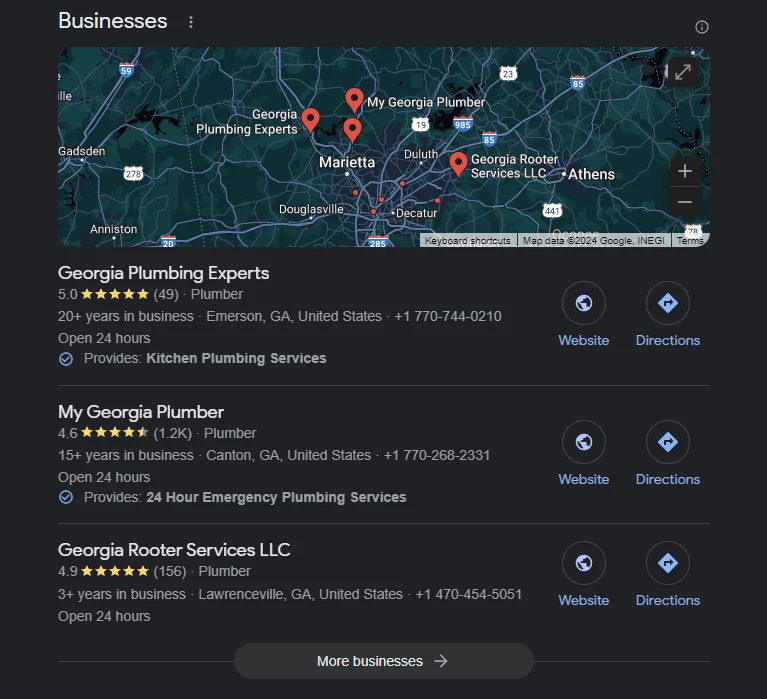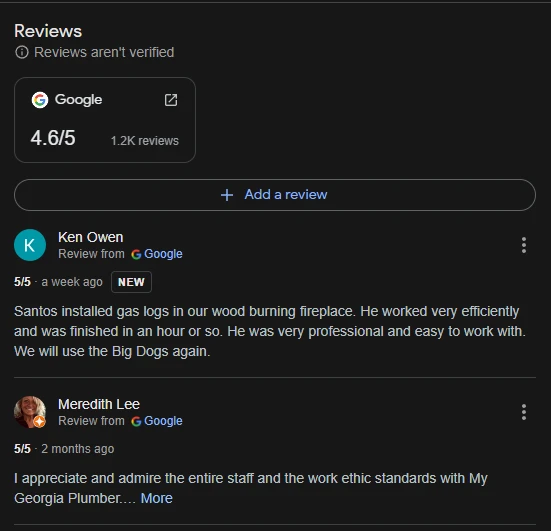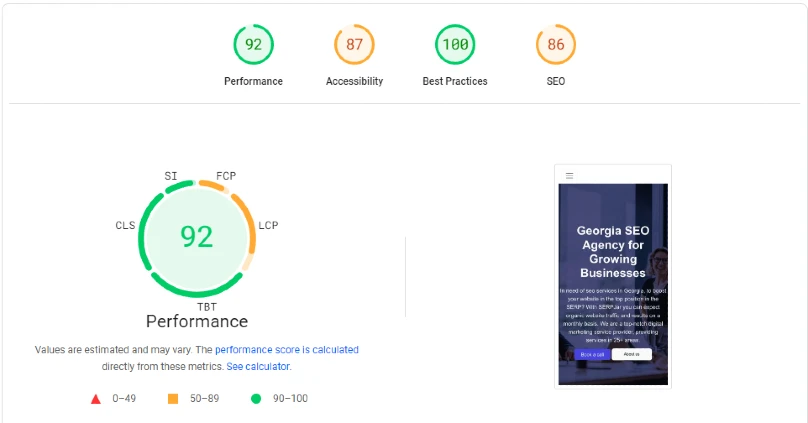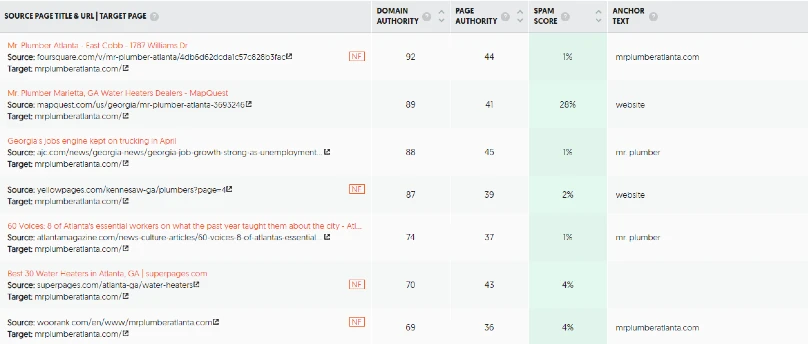Do you want to improve your local SEO campaigns and drive more results? By utilizing the top Local SEO ranking factors, you can easily get higher local rankings.
Throughout Google’s algorithm changes and improvement of ranking signals, we found the top 25 ranking factors, which are important in ranking local businesses in the local results.
What is Local SEO?
Local SEO, or local search engine optimization, is a digital marketing strategy that focuses on optimizing a business’s online presence to attract more local customers. It is achieved by ensuring that a business’s website and online content are optimized for specific local keywords and phrases. However, local businesses can also be optimized with the help of Google Business Profile listings.
By implementing local SEO strategies, businesses can increase their chances of appearing in the”local pack” on Google’s search results. It often appears at the top of the page and includes a map and three local businesses related to the search. To effectively implement local SEO, businesses should focus on creating localized content that meets the needs and interests of the local audience. This can include producing blog posts, videos, and social media content.
The Top Local SEO Ranking Factors in 2024
Google Business Profile Signals
Google Business Profile listings consist of a huge proportion of any Local SEO strategy and are a direct signal to Google about your local business’s existence.

As mentioned before, optimizing your GBP can directly improve your website rankings, and help you rank on the Google Local 3 Pack. To effectively improve your Local SEO results, you will need to focus on your GBP’s:
1. Business name: Make sure it includes the main keyword (the service provided) along with the name of the business. The main keyword should be rich, meaning to follow the longtail keyword variant.
2. Main and sub-categories: Including the main service as a category, followed by sub-services offered can tremendously improve the rankings of businesses, by helping Google understand what each business has to offer, without guessing.
3. Business Description: Long-form and keyword-rich business descriptions are an easy way for visitors to get to know your business.
4. Services: Adding the services offered by your business and location are yet another strong factor, which influences the rankings on both your listing and website.
5. Phone number: The phone number plays a huge part in the local ranking factors due to listing your NAP.
Review Signals
Reviews are a direct ranking factor, which is important for ranking in the local search results. Reviews help clients establish trust with the businesses, through their positive reviews. Negative reviews also help as they diversify people’s opinions based on the business. Regardless, of good or bad reviews, as a business owner responding to each is important.

1. Reviews from Google Business Profile & Bing Places can directly improve your rankings in the local search and even display you on the Maps tab.
2. Signing up for review websites, such as Trustpilot and Clutch can bring more trust and strengthen the website’s domain authority.
Positive reviews can also influence search engines to rank your business higher since most customers are happy with the services. Responding to their opinions is another great signal that your business is run by real people, who try to help customers.
On-page Signals
On-page optimization plays a critical role in determining a website’s visibility in local search results. It includes elements such as meta titles, meta descriptions, header tags, keyword usage, and geographic targeting. Ensuring that these elements are optimized for local search queries can greatly improve a website’s chances of ranking higher for local searches.
To improve your on-page local SEO you need to:
1. Optimize Titles and H1 tags: Include your service along with a city or a region, which signals to search engines that your page is relevant for local users.
2. Permalinks (URLs): While URLs play a small part as a local SEO signal, they can still move the needle of your overall ranking. Trying to use your service along with the location inside URLs is the best way to help search engines understand the similarity between your title and URL address.
3. Meta Description: Meta Descriptions are not a search engine ranking signal, but a user CTR increase. By using proper descriptions, that summarize your content, any person can be influenced to click on your result.
4. Headings: Including at least 1 H1 and at least a single H2 heading with your service and location can help search engines understand your content, and reward you without overoptimizing.
5. Keyword density: Keeping your keyword density at least 2% can have a positive impact on your rankings, without having to write long-form content.
6. Answer in the beginning: Answering from the beginning directly positively affects your content, as it helps users get the information faster, providing you with higher rankings and featured snippets.
7. Author and biography: Nowadays, websites without authors displayed seem untrustworthy, since people cannot find if the writer is a professional in a given topic. Google thinks the same way. By including an author’s image with a biography, and social media profiles, search engines can easily understand more about the author of the content and push the content’s ranking accordingly.
It’s important for businesses with a local presence to invest in on-page optimization to increase their chances of being found by local customers. By implementing these on-page SEO strategies, businesses can improve their local search rankings and attract more local traffic to their websites, leading to more potential customers and increased revenue.
Technical Signals
Technical SEO is a very important aspect of having a successful website. Especially, when wanting to optimize your conversion rates (CRO). Most CMSs come with optimization software, which is a good reason to switch from a hard-coded website. For example, WordPress has addons called plugins, which can help with optimizing websites for free.
The most important technical signals that positively influence local rankings are:
1. Website Speed: Website speed plays a huge role in conversions. It was even advised by Google that websites should improve their loading speed, ensuring a better user experience is met. With the help of PageSpeed Insights, Pingdom, and GTMetrix, website owners can easily find out what needs optimization to lower a website’s loading times.

2. Mobile-friendliness: Mobile-friendly websites are a must nowadays. In fact, Google tries to push down websites, which cannot be properly scaled on mobile devices. While it’s not a problem for websites hosted on a CMS, hard-coded websites may require additional checks from Google’s Mobile Friendliness checker.
3. Schema Markup: While not important for users, schema markup helps Google and other search engines to scan content faster. Even, rewards websites with a wide variety of snippets.
4. Hosting provider: Hosting providers play a significant role, due to their server quality, history as a business, and penalizations. Renting a server from a spammy hosting provider can directly negatively affect rankings.
Link Signals
Link signals are a significant Local SEO ranking factor. These signals refer to the quality and quantity of backlinks pointing to a website from other local websites within the same area. Essentially, the more reputable and relevant websites that link to yours, the higher your site will rank. This is because search engines view backlinks as a vote of trust. Not only do backlinks contribute to a website’s domain authority, but they also help search engines determine the credibility and trustworthiness of a site.

The types of backlinks that influence a website’s rankings are:
1. Local Citations: Helps build trust and improve your GBP’s authority through listing your NAP (Name, Address, Phone Number).
2. Niche edits: Build direct website authority, as you post your links on existing pages, which are already ranking in the local SERP.
3. Guest posts: Helps building authority with hand-crafted and strategized articles on popular websites, and controlling external links.
4. Infographics: Builds backlinks automatically, as many other website owners link directly to infographic content.
5. Social Links: Creating foundational social media profiles helps establish trust and authority on the web. While essential for every business, posting on Social Media helps establish the brand and its authority.
6. Local Forums: Perfect for building a local audience and increasing the traffic on your website, which influences Google to think your business is going viral.
7. Business directories: A great and free way to list any information relevant to the business, which strengthens the Google Business Profile.
When implementing a local SEO strategy, it’s crucial to focus on building a diverse and natural backlink profile that includes high-quality links from local sources. In addition to backlinks, other link signals that can impact local SEO rankings include the anchor text of the links, the diversity of linking domains, and the presence of NAP (name, address, phone number) consistency across different websites.
Domain Signals
Domain signals play a crucial role in local SEO ranking factors. These signals refer to various aspects of a website’s domain, including the domain age, domain authority, and overall trustworthiness. Search engines like Google take into account these signals when determining the relevance and authority of a local business website.
For example, a domain that has been around for a longer period may be seen as more trustworthy and established, thus giving it a higher ranking in local search results. Domain authority, which is a measure of a website’s overall strength and authority, also plays a significant role.

Websites with a higher domain authority are more likely to rank higher in local search results, as they are seen as more credible and reputable sources of information.
Domain signals that influence rankings:
1. Domain Authority: Secret Google Ranking factor, that helps establish the quality and quantity of backlinks a website has earned. Based on these metrics, Google estimates how trustworthy the domain is, and helps it rank higher for more keywords.
2. Domain Age: While not a direct ranking factor, older domains rank faster, and outperform newer domains due to the trust built over their years of existence.
3. Quality of links: Direct ranking factor, which helps Google and other search engines estimate how much to trust a website. For example, receiving links from the New York Times, Huffington Post, or an authoritative local website can directly influence a page’s rankings.
4. Number of links: Often overlooked as quantity and quality should be hand-by-hand, but the quantity of quality backlinks can concrete a page’s rankings.
5. Domain history: Helps Google to distinguish if the website is trustworthy, by checking if the domain was penalized or transferred between many owners.
6. Who Is Information: A very small ranking signal, which mostly establishes trust. Revealing your Who Is information shows local clients that your business is operated by real people. Hiding your Who Is will not affect ranking negatively.
7. Domain purchase time:
Moreover, search engines look at the overall trustworthiness of a domain, considering factors such as the presence of quality backlinks, the absence of spammy or low-quality links, and the overall user experience of the website. All of these domain signals are taken into account when determining the ranking of a local business website in search results.
